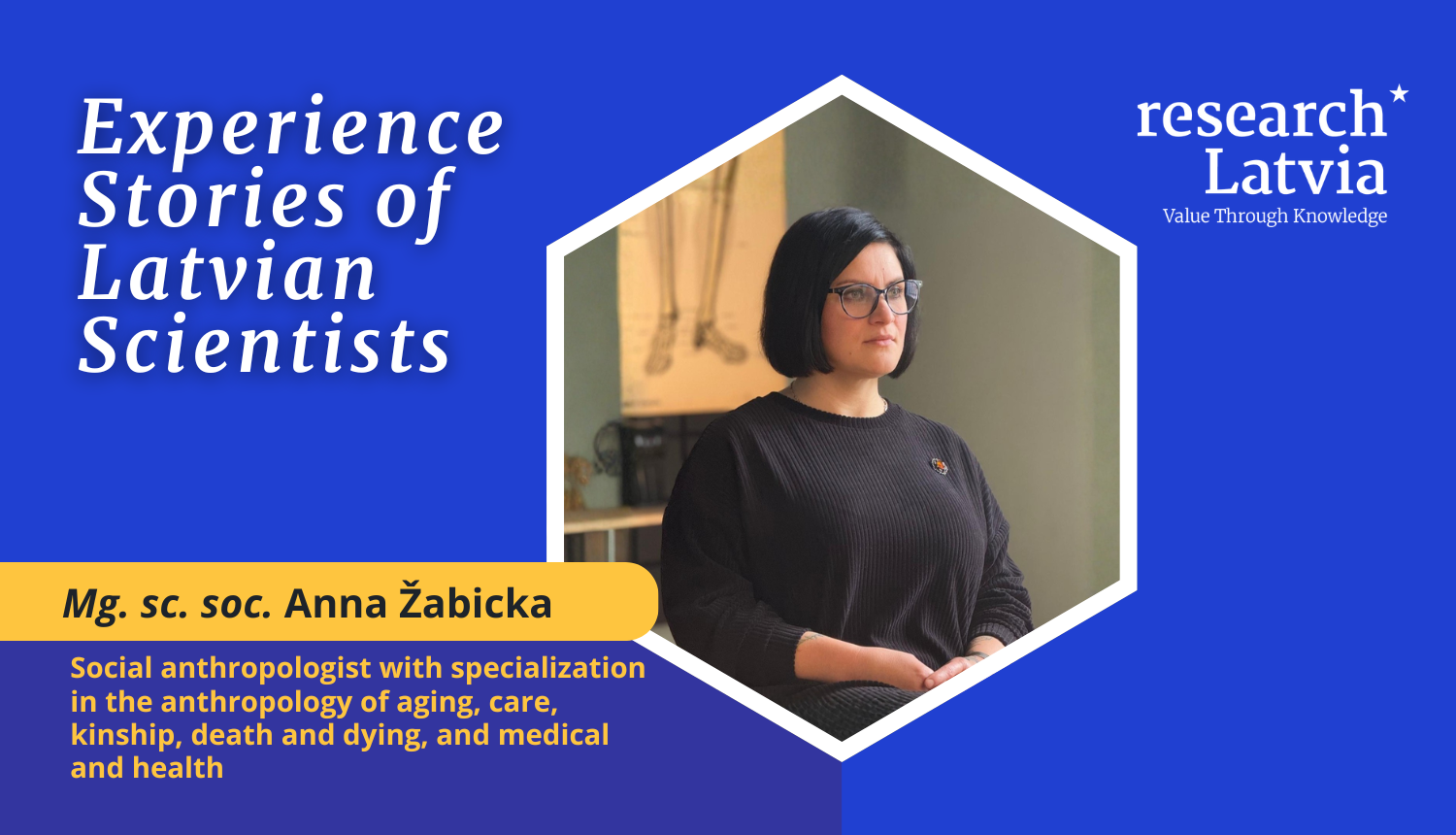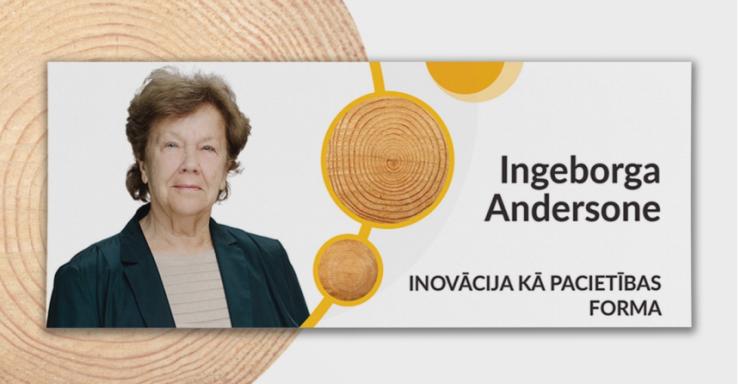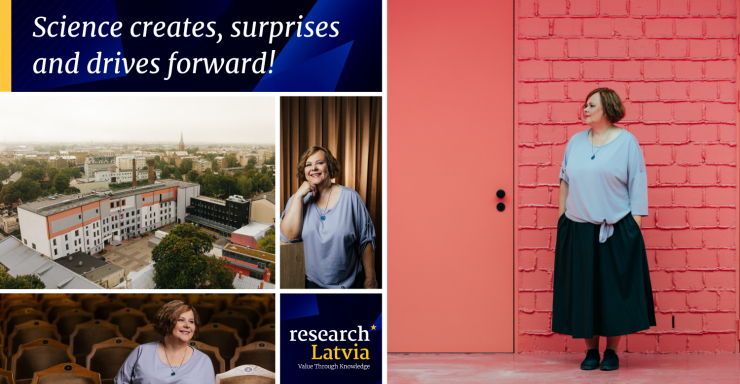Social anthropology plays a crucial role in understanding people, societies, cultural diversity, and habits. Anna Žabicka, a PhD candidate living abroad, is a social anthropologist specialising in the anthropology of ageing, care, kinship, death and dying, medicine, and health. The science communication platform researchLatvia, developed by the Ministry of Education and Science, speaks with the researcher about her work on ageing, the meaning of science today, and her experience studying outside Latvia.
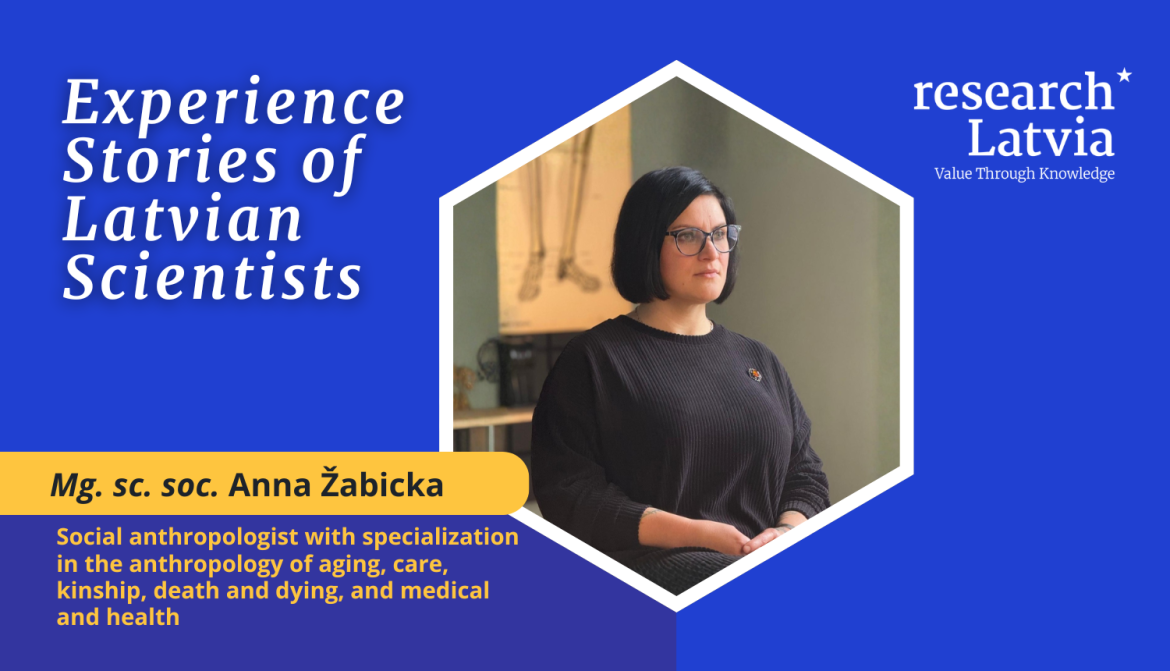
A Path That Found Its Way to Her
Social anthropologist Anna Žabicka, who is currently researching ageing, care, and kinship while writing her dissertation at the University of Vienna, has now returned to Latvia. Although as a child she already knew she would become a PhD, just like her grandmother, a biologist, her true academic path revealed itself much later.
"I came into science very slowly and accidentally. The topic fell into my lap," the researcher says with a smile.
Through collaboration projects, particularly highlighting her work with artist Jekaterina Stakle, and later while working in a long-term care home where she encountered older adults and their daily struggles, Anna discovered her deep interest in this topic. From this coincidence, a research passion was born, one that has lasted for over thirteen years.
"My daily life is full of fear, doubt, and self-overcoming. Overcoming myself is my everyday routine. I doubt every sentence I write. That’s just how it is, science is a constant process of overcoming."
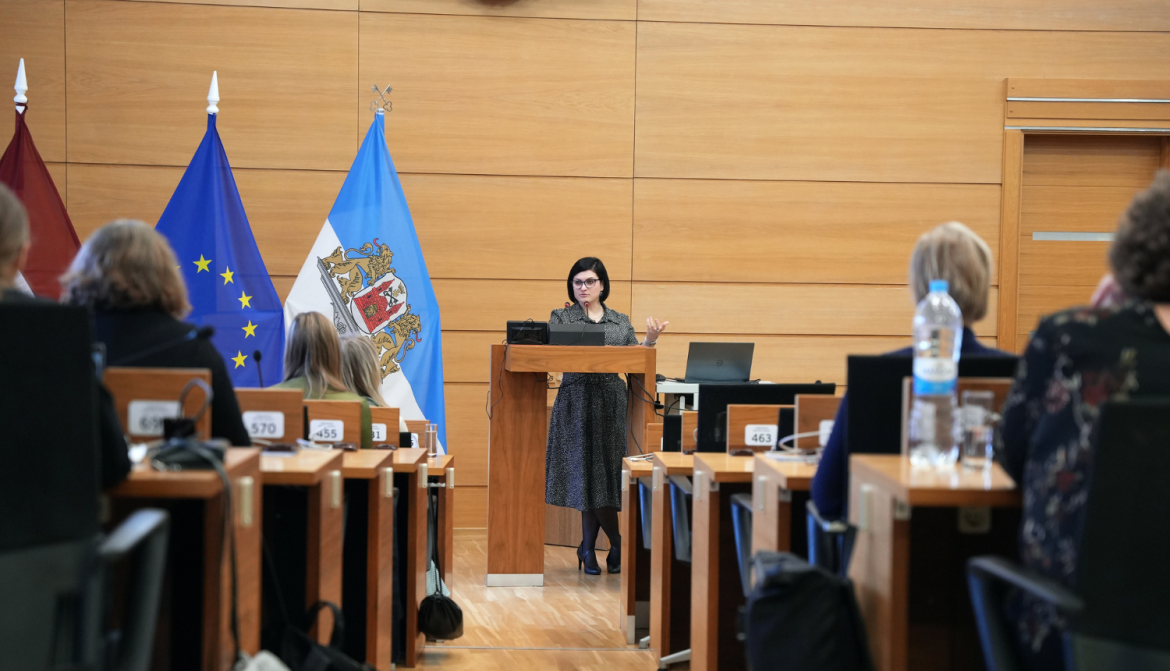
Yet behind these doubts lies a deep conviction that human life and society must be observed, understood, and told about with empathy.
An Anthropological View of Care
Studying ageing in anthropology involves examining not only issues of age or health but also human relationships, care, solidarity, and social values.
"I am interested in how we care for one another. How we live together, how society perceives the ageing person," explains the social anthropologist.
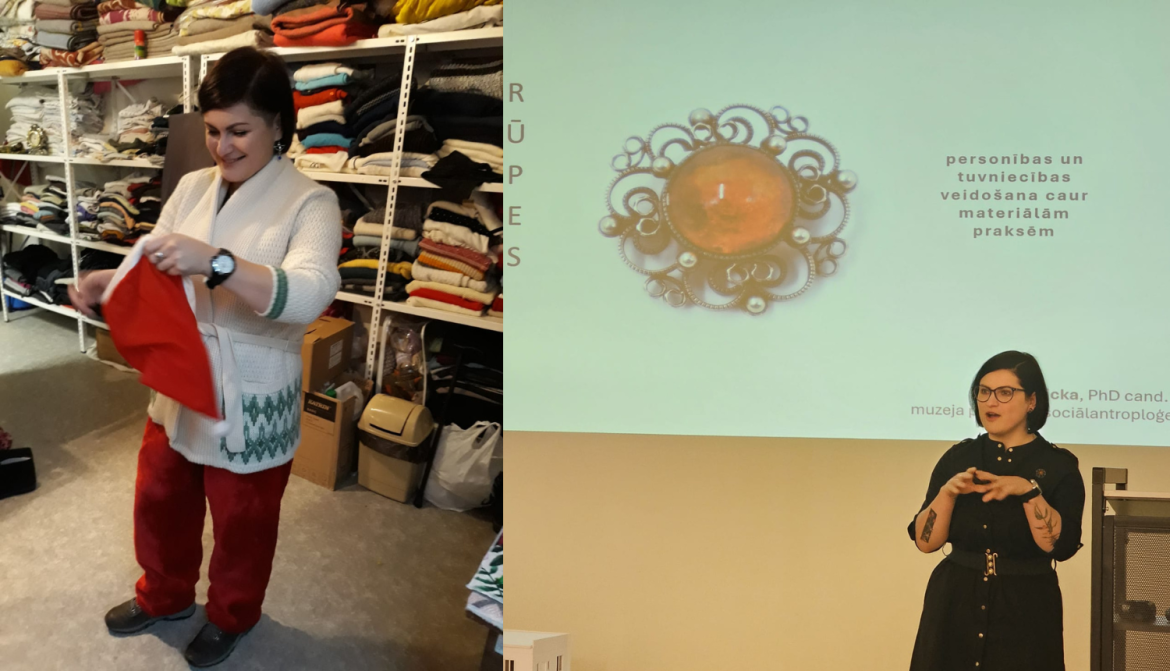
May 2024, Pauls Stradiņš Museum of the History of Medicine, lecture as part of the public program of the exhibition "Life After Death".
Her research is based on participant observation, an anthropological method that involves long-term fieldwork and living among people. This approach allows her to participate in their everyday lives to gain a deeper understanding of the social relationships, experiences, and meanings that shape their worlds.
"My goal has never been to solve problems. I want to show complexity, to reveal how multilayered care and ageing experiences are. I’m deeply interested in people."
This curiosity has led her not only to elderly individuals and care institutions but also to new forms of collaboration with society, including senior associations, NGOs, and individuals seeking to participate in research themselves.
"When people understand why they’re being asked to participate in research, they respond. It takes time and trust. Time is a privilege, but it’s also the greatest challenge in science," Anna Žabicka believes.
Science as Teamwork
Although scientists are often seen as solitary figures in a lab, Anna emphasises that modern science no longer works that way. She notes that the days when a single person made a remarkable discovery are long gone.
"Science is teamwork. We can no longer put one person in a golden frame and say. This is their discovery. Behind every researcher stands a whole team: doctoral students, students, and colleagues," says Žabicka.
This belief is also reflected in her work at the Pauls Stradiņš Museum of the History of Medicine, where she serves as a researcher, studying, analysing, and contributing to the creation of content for exhibitions and conferences. Her main task is to help the museum communicate with visitors through a research-based approach that connects the past, present, and future.
"Science becomes understandable when it meets society, when people come to the museum, ask questions, and want to understand how medicine and health shape our everyday lives," Anna explains.
Belonging and the Breath of the World
After studying and working in the United States and Austria, Anna has returned to Latvia convinced that her work can have the most significant meaning and value right here. She emphasises that her research field is in Latvia, showing that local, everyday experiences can also be of great interest to the world and contribute to international anthropology.
However, she admits that the global academic environment still calls to her:
"Sometimes I miss the academic breadth of the world. That’s why I need to maintain connections, networks, and collaborative projects. Science no longer happens in isolation; it’s a conversation between different disciplines, countries, and people."
Science as a Way of Life
In recent years, Anna has been working toward completing her dissertation, admitting that she has not had a proper break in the past two years. For her, science is not an eight-hour job; it is a way of life that requires full presence and trust in her path.
"I love anthropology, and even in my free time, I read publications on my topic on ageing, care, relations with the state, and emptiness. Although for my next vacation, I’d like to read something completely different, perhaps about the oil industry in the Amazon," Anna laughs.
Her advice to young researchers is heartfelt and encouraging:
"I wish I had gained confidence earlier that I’m good enough to do research. In science, we all grow, and the most valuable people are those who believe in you and offer their support."
Anna Žabicka demonstrates that science is not merely analysis or statistics; it is also a human story of doubt, collaboration, patience, and the desire to understand the world more deeply.
"Science is not a lonely path, but a conversation with colleagues, society, and oneself."
In closing, the researcher invites everyone who believes that thoughtfulness, empathy, and curiosity can make society wiser and more humane to take part in science.
